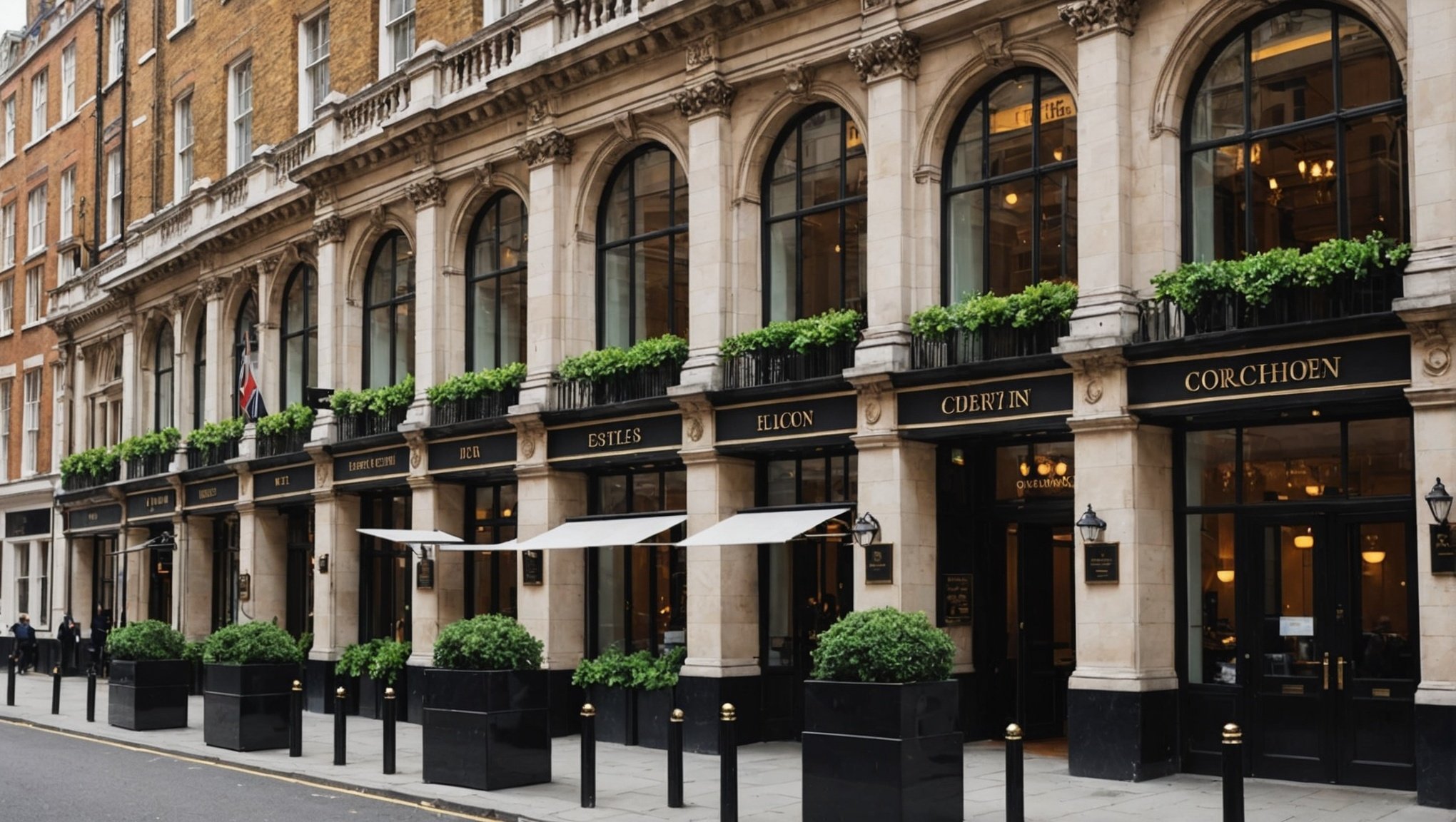Understanding Negative Publicity in the Hospitality Industry
In the hospitality industry, negative publicity can arise from various causes such as poor customer service, health and safety violations, or unethical business practices. The nature of hotels, relying heavily on customer experience and satisfaction, makes them particularly vulnerable to such issues. Negative publicity in hotels not only impacts their reputation but can also significantly affect revenue through decreased bookings and increased cancellations.
Crisis management in hospitality is essential to mitigate these impacts. A well-structured crisis management plan includes transparent communication, swift action to resolve the issue, and measures to prevent recurrence. This proactive approach helps rebuild trust and confidence among guests and the wider public.
In the same genre : Discover budget-friendly self storage solutions in glasgow now
Historically, several London hotels have navigated crises by adopting effective crisis management strategies. For instance, in cases where London hotels faced negative publicity due to poor hygiene standards, their response included immediate corrections, public apologies, and third-party inspections to reassure future guests.
By understanding the dynamics of negative publicity and employing comprehensive crisis management, hotels can not only recover but also strengthen their market position. It’s essential to recognise the power of perception and the role of media in amplifying these situations.
This might interest you : Essential Components of an Effective Content Marketing Strategy for Startups in Birmingham
Effective Crisis Communication Strategies
In the hotel industry, navigating a crisis with strategic crisis communication is crucial to maintaining a hotel’s reputation and stakeholder trust. Effective hotel PR strategies focus on the principles of transparency, timeliness, and tailored communication.
Key principles in this context ensure that hotel crisis communication not only addresses the immediate issue but also reassures stakeholders of ongoing commitment to excellence. Transparent communication means being open about what happened, what steps are being taken, and how it affects guests and staff. This transparency builds trust and mitigates negative perceptions.
Timeliness is another critical component. Responding swiftly and accurately to crises prevents misinformation and demonstrates control over the situation. Hotel management teams must develop a crisis communication plan that has protocols for immediate action. A pre-prepared statement or holding message can be a useful tool in the earliest stages of a crisis.
A tailored communication plan should identify key stakeholders such as guests, employees, partners, and the media, each requiring specific messaging. Emphasising the hotel’s values and commitment can resonate positively with these groups.
By focusing on these PR strategies, hotels can effectively manage crises, reinforcing a positive brand image and minimising potential fallout.
Online Reputation Management Techniques
Managing an online reputation for hotels is critical in today’s digital age. With numerous platforms for guests to express their opinions, proactive review management is essential. Monitoring online reviews and social media sentiment is a good start. By regularly keeping an eye on these platforms, hotel managers can swiftly address concerns and maintain a positive image. Also, implementing best practices for responding to negative reviews is crucial. This involves acknowledging the feedback promptly, showing empathy, and providing a solution whenever possible. Such responses can transform a critical comment into an opportunity to demonstrate commitment to customer satisfaction.
Furthermore, leveraging online reputation management tools can significantly streamline these processes. These tools assist in aggregating reviews from various platforms, making it easy to monitor and analyse sentiments all in one place. By utilising these resources, hotels can maintain a comprehensive picture of their reputation. Furthermore, having a proactive management strategy ensures that potential issues are addressed before escalating. Utilising these techniques effectively contributes not only to maintaining but also enhancing a hotel’s online reputation, fostering trust and credibility with existing and potential guests. Consequently, investing in skilled management and strategic tools pays off in customer loyalty and business growth.
Building a Proactive Customer Engagement Plan
In the competitive hospitality industry, customer engagement in hotels is more than just a buzzword—it’s a strategic imperative. Enhancing the hotel guest experience is key to reducing negative feedback. One effective strategy involves offering tailored experiences that exceed guest expectations. By personalising services, such as customised room settings or curated local activities, hotels can delight guests, turning potential criticisms into praise.
Creating loyalty programs is another avenue for fostering positive relationships. A well-designed loyalty program rewards repeat visits with benefits like exclusive discounts or upgrades, which not only encourages return bookings but also builds long-term trust and satisfaction. Personal experiences and acknowledgements—such as birthday surprises or complimentary services—further enhance perceived value and commitment.
It’s crucial for hotels to engage with guests across all stages of their journey: before, during, and after their stay. Pre-arrival communications can set the tone for personal connection, while mid-stay interactions ensure real-time feedback and service adjustments. Post-stay follow-ups, via surveys or thank-you emails, solidify the guest experience. By actively listening and responding, hotels can improve guest perception and loyalty.
Human-centric engagement strategies transform routine stays into memorable experiences, positioning hotels as leaders in customer-centric service.
Leveraging Positive Marketing and PR Campaigns
In the competitive landscape of the hospitality industry, crafting a positive brand narrative is quintessential, especially post-crisis. Establishing a resilient identity repositions hotels as trusted venues, rekindling guest loyalty and forging new connections. Hoteliers can revamp their hotel marketing strategies by emphasizing stories of resilience, community support, and enhanced guest experiences.
Case studies offer valuable insights into successful PR campaigns. London hotels, for instance, have astutely employed campaigns that highlight their community engagement efforts. One hotel featured its initiative to provide meals for healthcare workers, garnering significant media attention and fostering goodwill. These stories reinforce the hotel’s commitment to the community, thus enhancing its brand image.
Collaborating with influencers and media is another effective strategy to achieve positive PR for hotels. By partnering with well-known figures, hotels can amplify their reach to broader audiences, showcasing unique experiences and services. Such collaborations not only improve visibility but also lend authenticity to the narrative.
These examples illustrate how strategic PR efforts can transform challenges into opportunities. Leveraging media and influencer partnerships ensures a positive message reaches potential guests, while embedding a sense of trust and loyalty. With thoughtful planning, hotels can emerge stronger and more appealing, ensuring enduring success in the hospitality sector.
The Role of Employee Training and Internal Communication
Employee training plays a vital role in enhancing customer service and effective crisis response in hotels. Training programs designed as part of hotel employee training focus on equipping staff with the skills necessary for exceptional guest interaction and problem-solving. Well-trained staff can navigate challenges gracefully, improving guest experiences even during unexpected circumstances.
Integrating robust internal communication strategies ensures all team members work towards unified objectives. Consistent and clear communication channels help foster a cohesive environment where employees feel informed and engaged. Strategies such as regular team briefings and digital communication platforms can keep employees updated with essential information on updates and policies.
Empowering employees to become brand ambassadors offers significant benefits. Educated and well-communicated staff naturally promote the hotel’s values and culture through their actions and interactions. As brand ambassadors, employees contribute to mitigating negative impacts by creating positive guest experiences and maintaining the hotel’s reputation.
Developing comprehensive hotel employee training programs and implementing effective internal communication strategies firmly establish the foundation for a resilient and responsive team. This approach not only enhances day-to-day operations but also cultivates a motivated workforce committed to excellence.
Monitoring and Measuring Success
In the competitive hospitality industry, measuring hotel reputation is crucial for success. Key performance indicators (KPIs) provide invaluable insights into a hotel’s reputation management strategies. These metrics, such as customer satisfaction, online ratings, and occupancy rates, serve as a benchmark to assess performance metrics for hotels. They offer a clear picture of how well a hotel is performing in comparison to its competitors.
To further enhance understanding, tools like guest feedback surveys and sentiment analysis software are essential for tracking online sentiment. These tools help in gauging public perception through reviews and social media comments, allowing hotels to respond proactively. Interestingly, regular assessment and strategy adjustment based on guest feedback lead to improved service offerings.
- Key Performance Indicators:
- Customer satisfaction scores
- Online reputation scores from review sites
- Average occupancy rates
By consistently reviewing these metrics, hotels can identify strengths and areas that require improvement. This process ensures that the implementation of strategies remains effective over time. Importantly, adapting based on real-time data and insights empowers hotels to enhance guest experiences, leading to better reviews and increased bookings. Thus, the practice of monitoring success is a dynamic and integral part of the hospitality business.











